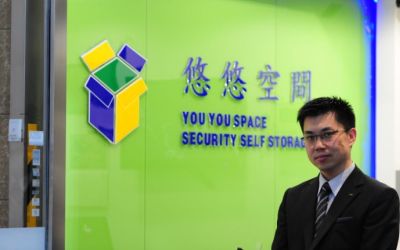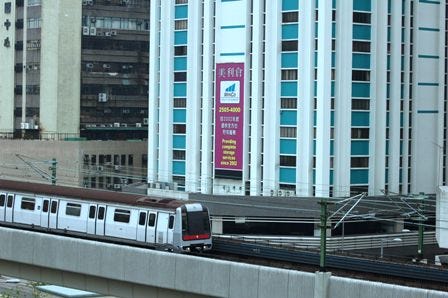Self-Storage Industry Soars in Asia: Insight From China, Malaysia, Singapore and Thailand
Self-storage operators in Asian countries including China, Malaysia, Singapore and Thailand introduced the product as a solution to limited space caused by dense populations. In conjunction with thriving economies and the soaring cost of real estate, consumers and businesses have turned to self-storage to fulfill their space needs, while operators strive to meet the demands of this growing industry.
November 17, 2012

By Rachel Adams
You could call it beginners luck, but the boom experienced by the Asian self-storage industry after its debut in the early 2000s was more likely the result of operators putting their best foot forward to offer solutions for small spaces in high-density populations, all the while battling a lack of public awareness, high real estate costs and stiff competition.
Self-storage operators in countries like China, Malaysia, Singapore and Thailand introduced the as a solution to the limited space caused by dense populations. In conjunction with thriving economies and soaring the cost of real estate, consumers and businesses have turned to self-storage to fulfill their needs, while operators strive to meet the demands of this growing industry.
The Chinese Market
Operating under the brand name SC Storage, SC Logistics Co. Ltd. opened its first self-storage facility in 2001 in Hong Kong. The company now has 38 stores throughout Hong Kong and Macau. Like many operators in the region, SC Storage began expanding quickly as the demand for self-storage grew. Right from the beginning, we saw the demand far outstrip supply, so we started to expand as soon as our first facility was full in early 2002, says Kevin She, CEO and co-founder.
Unlike U.S. self-storage developers, most operators in Asia build from pre-existing industrial buildings due to the lack of space for new structures. Recent rises in the cost of real estate, however, have taken a toll on industry growth.
There are no new industrial buildings being built, and due to the high value of real estate, many are being converted to office space or even hotels, says Marilyn Leslie, president of MiniCo Asia Ltd., which operates three locations in Hong Kong under MiniCo Self Storage. This drives the cost of old industrial buildings very high and makes expansion difficult.

When MiniCo entered the Hong Kong market in 2002, there were 11 self-storage facilities. Today there are more than 150. As competition increases and public awareness grows, the industry adapts. Peoples expectation of self-storage has changed, Leslie says. Service has become more important. They want more than a flimsy room with questionable security and no service.
Service is a priority at You You Space Security Self Storage, which opened its doors in 2010 in Shanghai. It's important to educate the market before focusing on expansion, according to CEO Steven Chen. We believe self-storage is a service-oriented business," he says. "To establish a great service model is more valuable to us than to build many sites and then bear risks of paying too many fixed costs.
Facility location is also becoming more important as the industry matures. Due to the increase of facilities, people no longer have to travel long distances to access their goods, Leslie says. Initially, there were very few self-storage stores and so our customers came from all over Hong Kong. Now, a convenient location is more important to the success of a facility.
Other Asian Markets
Like the Chinese market, Singapore struggles with high-density population and limited space. Store Friendly and StorHub have facilities in Singapore as we as Lock and Store Self Storage, which has two locations. Extra Space Self Storage has opened five facilities in the area since its first in 2007.
Self-storage has also been introduced in Malaysia and Thailand. Extra Space opened its first self-storage facility in Kuala Lumpur, Malaysia in January 2012. CEO Michael Hagbeck said the company plans to open two to three more facilities within the next few years.
StoreGuard Co. Ltd. opened MY STORAGE in Phuket, Thailand, in 2010. The Thailand self-storage market is still extremely young. To the majority of Thai residents, self-storage is still a completely new concept, said facility manager Robert Akerblom. By being a green-field market, there is still much to be done in regard to education and marketing of the many advantages and services self-storage can provide.
To avoid the types of expansion obstacles being faced in Hong Kong, the Association of Southeast Asian Nations aims to facilitate business expansions in Thailand by integrating the southeast region. Once the integration is complete in 2015, Thailand and neighboring countries will share the free movement of goods, services, investments, skilled labor and capital, Akerblom said.
To aid logistics, many rail, road, sea and air infrastructure projects have been completed or are in progress. Akerblom said this will generate potential for growth. In the meantime, MY STORAGE plans to expand its current location, adding approximately 400 units.
We have closely been following the expansions in Hong Kong and Singapore and are aware of other Asian facilities coming up, Akerblom says. The self-storage industry there has been through an exciting expansion over the past several years. As for Thailand, there is not much of a trend since the market pretty much is undeveloped.
Building Awareness
Overall, operators agree public awareness is critical to the growth of the self-storage industry throughout Asia, since many consumers are still unaware of the benefits of the service. After two years of MY STORAGE operation, Akerblom said Thai locals and other potential consumers only have a vague idea of the concept.
Chinese consumers are still wary of self-storage because of cultural traditions by which people do not store things outside the home, according to Chen. After two years of continuously working on market education and many kinds of media exposure, we gradually found that people start to trust our brand and see what difference it makes if they accept self-storage in their life, he says.
Marketing and television advertisements have helped consumers in Hong Kong gain awareness of self-storage, Leslie notes. Once they realize the benefit of the additional space to store their stuff and the ability to free up their living space, they embrace the idea of self-storage, she says. I used to talk to a lot of people that did not even know the word self-storage. Now most people know about it and many people use it.
Chen is hopeful the Asian self-storage market will continue to grow steadily as it has in other countries. Self-storage will be an everyday part of the lifestyle in the end, just like what has happened in the U.S. self-storage industry over 40 years ago.
You May Also Like





